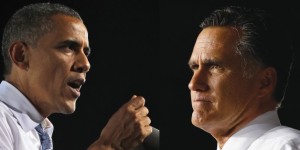Does social media affect the political process?
What we may want to pay attention to is how the whole social media universe could affect the outcome of this election. Of course, this will not be the first general election in history in which social networks were instantly accessible to open up discussions about the candidates, but the presidential race in the United States has a magnitude (and ruthlessness) that cannot be found anywhere else in the world, so it should be interesting to look into. The presidential campaigning period is a time of ubiquitous semi-propagandist media distribution – books are published, TV ads are aired, Youtube videos are uploaded, private photos are revealed – which serve either to endear the electorate to one candidate, or discredit the other. Overall £2bn was spent in the Obama-Romney race.

Two years after the race began, the statistics show that the candidates are neck to neck, with Obama only marginally in the lead. And this got me thinking: it seems amazing that, in this day and age, the two candidates for the most powerful position in the world can still be neck to neck! Wouldn’t unlimited access to information and constant dialogue, offline and online, have made the decision any clearer for the voters as to who to root for, or created a strong favourite? The US is a country of strong political extremes, and this does not seem to have been affected in the slightest by the technology that surrounds us. Americans, it seems, will stay true to their political and religious affiliations, no matter how well informed they are about the personalities and policies of the candidates.
But what about the as-of-yet undecided voters? With the huge amount of social media activity that is bubbling among Americans, it will be worth investigating whether online conversations influenced these voters’ decision and tipped the scale, once the results are in and the new American president is announced…


